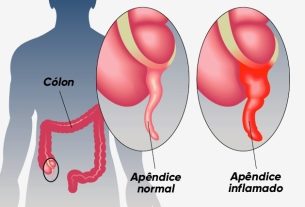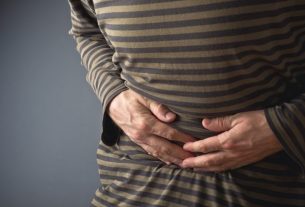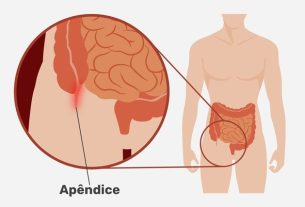Food after appendicitis should be light and easily digestible. In the hospital, food begins within the first 24 hours after the operation, and should consist of clear liquids, such as chicken broth and diluted juices, to assess tolerance to food and facilitate bowel function, avoiding pain and discomfort. be.
Appendicitis is the inflammation of a portion of the large intestine called the appendix. This situation is considered a medical emergency, requiring surgery to remove the appendix. In general, the person remains hospitalized for 24 hours and is then released home.
In this case, it is important to drink plenty of fluids and eat a soft, easily digestible diet during the first few days after surgery, reducing the risk of complications, as they create less stress on the gastrointestinal tract.

Allowed foods
Foods that can be consumed after appendicitis surgery are:
- Fruits, such as pears, apples, or peeled, seedless and cooked peaches, preferably;
- Cooked vegetables, such as carrots, zucchini, eggplant, and pumpkin;
- Cooked tubers, such as potatoes or skinless sweet potatoes;
- Cereals, such as rice and pasta;
- Skinless fish and turkey breast;
- Skimmed milk, natural yogurt and low-fat white cheeses;
- White bread and crackers cream cracker;
- Chicken broth, vegetable broth and pumpkin or carrot cream;
- Gelatin and fruit jelly.
It is also very important to drink 1.5 to 2 liters of water per day to prevent constipation and reduce the abdominal pressure required when having a bowel movement. To add flavor to food, you can use aromatic herbs, such as oregano, coriander and parsley, for example. See other precautions that should be taken after appendix surgery.
Food must be prepared grilled, boiled or steamed. Furthermore, it is also important to eat in small portions and several times a day, having 3 main meals and 2 or 3 snacks.
What you can’t eat after surgery
During the immediate postoperative period, you should avoid:
- Foods rich in fat, such as snacks, sausages, fried foods, butter, sauces, pizzas, sausages, yellow cheeses, ice cream and whole milk;
- Processed foods rich in sugar, cookies, muffins, cakes and sugary yogurt;
- Alcoholic drinks and drinks rich in caffeine, such as coffee, green tea and black tea, for example;
- Spicy foods and pepper;
- Foods rich in fiber, raw and unpeeled vegetables and fruits;
- Whole Foods;
- Dried fruits and seeds, such as hazelnuts, peanuts, walnuts, sunflower seeds, chia or flaxseed.
Foods that promote the production of intestinal gas, such as beans, cabbage, broccoli and asparagus, for example, should also be avoided for 1 week, as they can cause discomfort and abdominal pain. Learn more about foods that cause gas.
How long should this diet be maintained?
This diet must be maintained for at least 3 days, and you can return to a balanced and healthy diet, of normal consistency, if the person has not shown any sign of intolerance or complication.
3-day menu for appendicitis
The following table shows an example of a 3-day menu of a semi-solid diet for the post-operative period of an appendectomy;
The quantities included in the menu vary from one person to another, so the ideal is to be guided by a nutritionist so that a complete assessment can be carried out and the meal plan can be determined according to the person’s needs. Furthermore, it is important to respect the suggested recommendations to avoid possible complications.
Bibliography
- NIH. Bland diet. Available at: <https://www.ncbi.nlm.nih.gov/books/NBK538142/>. Accessed on March 17, 2023
- RIZALAR S et al. Effect of Early Postoperative Feeding on the Recovery of Children Post Appendectomy . Gastroenterology Nursing. 41. 2; 131-140, 2018
- OOK Hyung, KANG M et al. Patient-Controlled Nutrition After Abdominal Surgery: Novel Concept Contrary to Surgical Dogma. Annals of Coloproctology. 34. 5; 253-258, 2018
- CLINICAL NUTRITION ESPEN. ESPEN practical guideline: Clinical nutrition in surgery*. 2021. Available at: <https://www.espen.org/files/ESPEN-Guidelines/ESPEN_practical_guideline_Clinical_nutrition_in_surgery.pdf>. Accessed on March 17, 2023

Sign up for our newsletter and stay up to date with exclusive news
that can transform your routine!
Warning: Undefined array key "title" in /home/storelat/public_html/wp-content/plugins/link-whisper-premium/templates/frontend/related-posts.php on line 12
Warning: Undefined array key "title_tag" in /home/storelat/public_html/wp-content/plugins/link-whisper-premium/templates/frontend/related-posts.php on line 13



